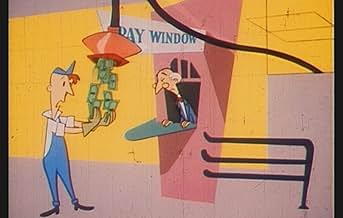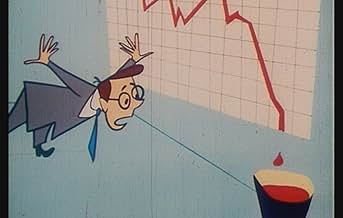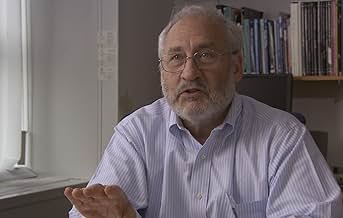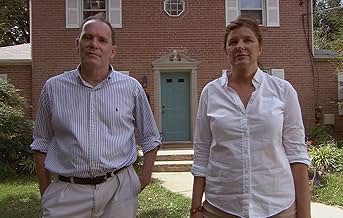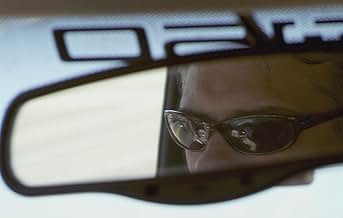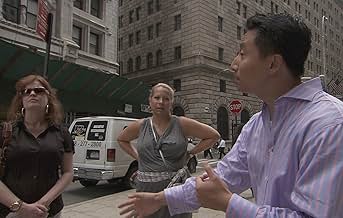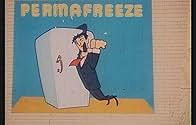An examination of the causes of the economic crisis of 2008.An examination of the causes of the economic crisis of 2008.An examination of the causes of the economic crisis of 2008.
- Awards
- 1 nomination total
Featured reviews
Only 2 reviews for this remarkable film? I leave the spoiler box unchecked, but really, the film is a "spoiler" since it refers to the most recent crash, a veritable implosion of the global economy based partially on mortgage backed securities.
The film is British, so at the very least we have a fine mix of American and British academics in economics giving slightly different, but converging approaches to what happened.
I've seen a number of films on the crash (fictional and documentary), and this one is by far the best. The film is technical at times, but this is necessary. Nowadays, many of the actors involved in the financial sector are "financial engineers." The days of simplicity are long gone. It's all algorithms and computers now.
The film strikes a perfect balance between archival footage, expert discussion, and interviews with "real people" who were caught up in the real estate binge. And not all of those who bought houses were speculators, some just wanted a decent place to live, and maybe to use that decent place to consolidate debts.
The title "The Flaw" seems to have come from testimony given by Greenspan who referred to a flaw in his own ideology. The irony of this Randian admitting a problem with his ideology should not be taken for granted.
I walked away from this film wanting to watch it again. I hope more people will watch this film. This is not some kind of anti-capitalist diatribe. Instead the film methodically and subtly point out something we all know intuitively; capitalism as it presently functions cannot be sustained.
There are no simple answers. Only some terrifying questions. And by the way, nothing was solved by the bailouts that wasn't short term. Nothing.
The film is British, so at the very least we have a fine mix of American and British academics in economics giving slightly different, but converging approaches to what happened.
I've seen a number of films on the crash (fictional and documentary), and this one is by far the best. The film is technical at times, but this is necessary. Nowadays, many of the actors involved in the financial sector are "financial engineers." The days of simplicity are long gone. It's all algorithms and computers now.
The film strikes a perfect balance between archival footage, expert discussion, and interviews with "real people" who were caught up in the real estate binge. And not all of those who bought houses were speculators, some just wanted a decent place to live, and maybe to use that decent place to consolidate debts.
The title "The Flaw" seems to have come from testimony given by Greenspan who referred to a flaw in his own ideology. The irony of this Randian admitting a problem with his ideology should not be taken for granted.
I walked away from this film wanting to watch it again. I hope more people will watch this film. This is not some kind of anti-capitalist diatribe. Instead the film methodically and subtly point out something we all know intuitively; capitalism as it presently functions cannot be sustained.
There are no simple answers. Only some terrifying questions. And by the way, nothing was solved by the bailouts that wasn't short term. Nothing.
An extremely interesting look at the problems associated with capitalism in America. This documentary goes hand in hand with Michael Moore's CAPITALISM: A LOVE STORY, although there's more of an emphasis on helping the viewer to understand technicalities (whereas Moore focused on showing the human side of the story).
I came out of it with a better grasp of Wall Street, the real estate market, boom and bust and consumer society in general, which is no mean feat. The voice over narration is well judged, the graphs extremely useful and there are no dull bits. The use of old cartoons and film clips adds comedy to a documentary you wouldn't think of as amusing. Recommended.
I came out of it with a better grasp of Wall Street, the real estate market, boom and bust and consumer society in general, which is no mean feat. The voice over narration is well judged, the graphs extremely useful and there are no dull bits. The use of old cartoons and film clips adds comedy to a documentary you wouldn't think of as amusing. Recommended.
The Flaw delivers the story of the causes of the financial crisis and what may have caused it. There is bias in this documentary but it isn't as overt as most documentaries. The great thing and the reason why I believe that everyone should watch this movie is that this documentary delivers a the information of the financial crisis in a format that is easy to digest and gives great visual representation of everything that lead up to the collapse. The flaw of The Flaw is that there are some stories and story lines that are personal to one or two people instead of a whole audience. These stories, in my opinion, are David Sington's attempt to elicit an emotional connection and reaction to what happened with the financial collapse. This makes the documentary feel more personal and allows the viewer to feel more connected to the issues. That said, that is part of what I am not a huge fan of with these types of documentaries. I personally would have rather just had the information and the graphs and charts showing what happened without the personal stories so that the movie wouldn't feel so biased. This is a good documentary that is a scant 78 minutes, has good information and is easy to get through.
4 is a generous rating.
This documentary spends too much time on inequity of pay. Frankly, if all pay increases, we don't care if someone else makes more.
The housing index adjusted for inflation from 1890 was interesting.
They pulled out tiny bits of Allen Greenspans congressional inquiry to make him look bad. They used it to cast doubt on capitalism without justifying or explaining what the actual failure was that caused the crisis.
Banks loaned to people who should never have qualified for the loans. Yes. But why!? Banks would never do that because it puts them at risk. Underwriters would never do this if they were free to make their best decisions.
This documentary makes it look like it's the banks who cooked up this idea to lend money to people without verifying income. That's false. Bill Clinton signed law requiring lending without checking. They wanted to NOT DiSCRIMINATE based on INCOME That is just stupid. Banks simply complied and then figured out a way to sell the unvetted loans... risk mitigation. It's exactly what any business would do when the government forces them into business practices that do not make financial sense.
This had a lot of potential to enlighten about the 2008 fall, but it failed. I would not recommend this to my kids or anyone for a big picture of the 2008 banking crisis. It had agenda toward equity instead of focusing on the actual laws and resulting compliance that caused it.
This documentary spends too much time on inequity of pay. Frankly, if all pay increases, we don't care if someone else makes more.
The housing index adjusted for inflation from 1890 was interesting.
They pulled out tiny bits of Allen Greenspans congressional inquiry to make him look bad. They used it to cast doubt on capitalism without justifying or explaining what the actual failure was that caused the crisis.
Banks loaned to people who should never have qualified for the loans. Yes. But why!? Banks would never do that because it puts them at risk. Underwriters would never do this if they were free to make their best decisions.
This documentary makes it look like it's the banks who cooked up this idea to lend money to people without verifying income. That's false. Bill Clinton signed law requiring lending without checking. They wanted to NOT DiSCRIMINATE based on INCOME That is just stupid. Banks simply complied and then figured out a way to sell the unvetted loans... risk mitigation. It's exactly what any business would do when the government forces them into business practices that do not make financial sense.
This had a lot of potential to enlighten about the 2008 fall, but it failed. I would not recommend this to my kids or anyone for a big picture of the 2008 banking crisis. It had agenda toward equity instead of focusing on the actual laws and resulting compliance that caused it.
"The capitalism in the last thirty years has decreased the standard of living for everyone except at the top."
This was the statement of Louis Hyman, an economic historian. I'm mentioning this statement because it was in respects to the more surprising issue behind the '08 financial collapse. Everyone heard the term "subprime mortgages" and everyone believed that that was the core issue behind the '08 financial collapse. What I never heard was "income inequality" which was mentioned in "The Flaw."
When wages stagnate for the poor and middle class, the only way an economy can keep humming is through borrowing and credit, i.e. Debt. When debt increases so does spending which increases the wealth of the top 10%. Debt can only increase by so much before defaults happen and then it all comes tumbling down. But, as Hyman pointed out, it begins with outrageous income inequality.
Of course, there were a lot of other factors mentioned for the '08 crisis: CDO's (Collateralized Debt Obligations), sector rotation, asset market, and more. This 80 minute documentary was very informative and educational. It's been fourteen years since 2008, but it still seems like only yesterday. Furthermore, the way home prices have skyrocketed in the last decade I can only wonder what will cause them to plummet again, and who/what will be to blame this time. Again it seems like the government is behind the curve on the economy and does too little too late.
Free with Amazon Prime.
This was the statement of Louis Hyman, an economic historian. I'm mentioning this statement because it was in respects to the more surprising issue behind the '08 financial collapse. Everyone heard the term "subprime mortgages" and everyone believed that that was the core issue behind the '08 financial collapse. What I never heard was "income inequality" which was mentioned in "The Flaw."
When wages stagnate for the poor and middle class, the only way an economy can keep humming is through borrowing and credit, i.e. Debt. When debt increases so does spending which increases the wealth of the top 10%. Debt can only increase by so much before defaults happen and then it all comes tumbling down. But, as Hyman pointed out, it begins with outrageous income inequality.
Of course, there were a lot of other factors mentioned for the '08 crisis: CDO's (Collateralized Debt Obligations), sector rotation, asset market, and more. This 80 minute documentary was very informative and educational. It's been fourteen years since 2008, but it still seems like only yesterday. Furthermore, the way home prices have skyrocketed in the last decade I can only wonder what will cause them to plummet again, and who/what will be to blame this time. Again it seems like the government is behind the curve on the economy and does too little too late.
Free with Amazon Prime.
Did you know
- ConnectionsFeatures It's Everybody's Business (1954)
- How long is The Flaw?Powered by Alexa
Details
- Release date
- Country of origin
- Official site
- Language
- See more company credits at IMDbPro
- Runtime
- 1h 18m(78 min)
- Color
Contribute to this page
Suggest an edit or add missing content


